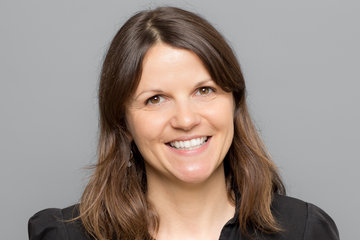Ankita Kapoor awarded two prestigious fellowships
EMBO and Marie Skłodowska-Curie Actions honor Max Planck researcher with postdoctoral fellowships
Ankita Kapoor, researcher at the Max Planck Institute of Immunobiology & Epigenetics (MPI-IE), has received two postdoctoral fellowships from EMBO and the Marie Skłodowska-Curie Actions of the EU. Her project will explore epigenetic mechanisms influencing metabolic regulation.

Ankita Kapoor, a researcher at the MPI-IE in the lab of Asifa Akhtar, has been awarded two distinguished postdoctoral fellowships – one by the European Molecular Biology Organization (EMBO) and another by the Marie Skłodowska-Curie Actions of the EU.
These fellowships will support Ankita’s innovative research aimed at advancing our understanding of the epigenetic mechanisms underlying metabolic regulation. In her project “MetaMOF,” she will employ the fruit fly Drosophila melanogaster to investigate early metabolic changes facilitated by the epigenetic regulator MOF. MOF appears to act as a molecular bridge between epigenetics and metabolism, and Ankita’s work aims to uncover its precise role in metabolic regulation.
Ankita Kapoor conducted her doctoral studies at the Institute for Stem Cell Biology and Regenerative Medicine in Bangalore (India). Before joining the lab of Asifa Akhtar in 2023, Ankita used Drosophila in her PhD work to study blood cell development. “I discovered that dopamine, a chemical best known for its role in the brain, also controls the proliferation of blood cell precursors. This finding suggests that neurotransmitters might also influence the immune system – opening new avenues for exploring neurotransmitters as immune regulators,” says Ankita Kapoor.
With her now supported Postdoc project at Max Planck, Ankita’s research will focus on how MOF, an enzyme that modifies DNA-associated proteins and influences early metabolism in fruit fly embryos. She will study how a specific MOF-mediated modification (H4K16ac), passed from the mother fly, shapes metabolism and supports proper development of the offspring. Her research will not only further our understanding of fundamental developmental processes but also will provide implications for understanding metabolic disorders, developmental diseases, and the role of epigenetic inheritance in health and disease.
EMBO Fellowships
The EMBO Postdoctoral Fellowships are awarded for a period of up to two years and support excellent postdoctoral researchers in laboratories throughout Europe and the world. International exchange is a key requirement. EMBO Postdoctoral Fellowships include a stipend plus extras andalso support the career development of the fellows through leadership courses and networking opportunities. The fellowship is highly competitive with an average of 600 applications per evaluation and a success of around 15%.
Marie Skłodowska-Curie Postdoctoral Fellowship
The European Commission’s Marie Skłodowska-Curie Postdoctoral Fellowship Program supports exceptional scientists by awarding prestigious two-year fellowships at research institutions across EU member states. Designed to advance scientific careers and promote research excellence, the program selects fellows through a rigorous and highly competitive process – with an acceptance rate of less than 15% evaluating both the applicant’s achievements and the scientific merit of their project and host institution. In addition to a monthly stipend, the fellowship provides research funding, travel allowances, and access to a yearly networking and training meeting, further enriching the fellows' professional development.












